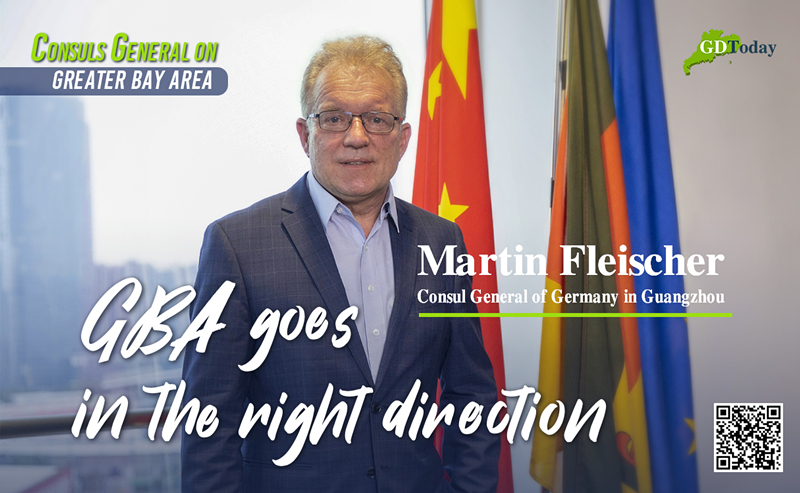"There are many things I like about Guangzhou and Guangdong," Martin Fleischer, Consul General of Germany in Guangzhou, said he loves the pleasant weather, delicious food and diversity in Guangdong. "But what impresses me most are the people, they can be pretty relaxed and can be pretty cool, and that's admirable."
Martin Fleischer has served as the Consul General of Germany in Guangzhou for about four years since August 2017. During his spare time, Mr. Fleischer likes playing music including jazz, classical baroque music as well as rock and roll. He performs at the JZ Club in Guangzhou's Party Pier once every month.
Seaside and beach, impressive mountains, Lingnan architecture... the German CG also feels admiration for the province's diversity, suggesting that "You need a bit of patience to discover, because Guangdong has many hidden jewels that you really have to go and to explore."

Over the past several years, Martin Fleischer has visited many cities in Guangdong, including Maoming, Zhanjiang and Meizhou, not to mention those cities in the Pearl River Delta region.
"Guangdong is the largest and economically strongest province in China. Almost one third of China's imports and exports go through Guangdong Province, and that's very important for Germany," Martin Fleischer pointed out, "Guangdong has a pretty good business and investment climate, and German companies like to invest in the province."
He took German chemical giant BASF's new project, the largest-ever investment project in Guangdong, as an example. BASF officially launched its smart Verbund project in the city of Zhanjiang, with investment estimated to reach up to 10 billion U.S. dollars upon completion. The project will initially include plants to produce engineering plastics and TPU serving a range of key industries. As the first wholly foreign-funded project in China's heavy chemical industry, the Verbund project, with the first-stage units expected to come on stream in 2022, is a demonstration of the chemical behemoth's ambition to expand further into China, the world's largest market for chemical products.
According to the CG, there are currently about 600 German companies in Guangdong, and the province with Germany can establish cooperation in petrochemical industry, autonomous driving, and environmental and climate technology.
The CG also holds that the Guangdong-Hong Kong-Macao Greater Bay Area (GBA) is heading in the right direction since it aims at creating a unified economic space with nine Guangdong cities, Hong Kong and Macao SARs. He believes that there is a huge potential of cooperation between the GBA and Germany as Guangdong enjoys a good business and investment climate while Hong Kong highlights great, favorable advantages in terms of financial and judicial system.
Martin Fleischer expects more and more German enterprises and German people to settle down in the GBA in the future. "I think that the Greater Bay Area should be a pioneer in a more open international communication."
Presented by GDToday & Nanfang Daily


